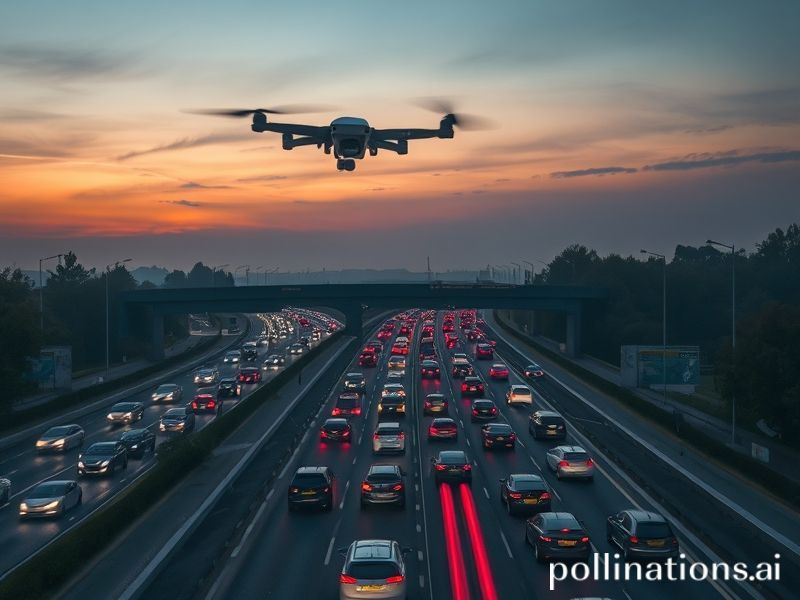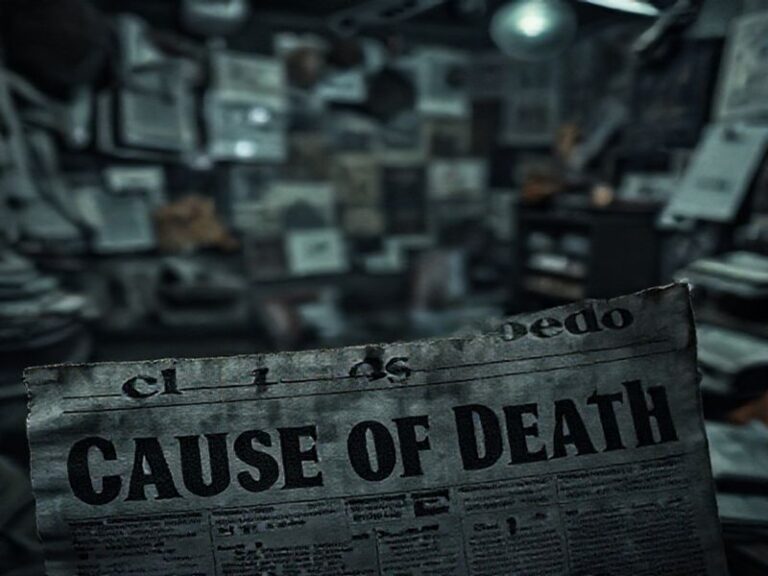The M4 Traffic Jam: Britain’s 189-Mile Monument to Human Stubbornness Amazes Global Experts
**The M4: Humanity’s Monument to Perpetual Motion (and the Art of Going Nowhere)**
The M4 traffic jam stretches from London to the Welsh border like a modern-day Great Wall, except this one’s built from brake lights, shattered dreams, and the collective realization that perhaps driving 3,000 pounds of metal to sit perfectly still wasn’t humanity’s finest evolutionary achievement.
International observers—those brave souls who’ve witnessed Jakarta’s scooter swarms, Cairo’s automotive anarchy, and Los Angeles’ parking-lot masquerading as interstate—still find themselves mesmerized by the M4’s peculiar brand of British purgatory. It’s traffic with manners, gridlock with etiquette, a queue so quintessentially English that even the road rage comes with an apology.
From Beijing to Bogotá, the M4 has become a global case study in humanity’s stubborn refusal to admit defeat. While Singapore’s congestion charging and Stockholm’s dynamic tolls actually move vehicles, the M4 persists as a 189-mile testament to the triumph of hope over horsepower. The international community watches with morbid fascination as Britons spend 31 hours annually staring at the Audi insignia ahead, calculating whether they could have walked to Cardiff faster (they could, by approximately three days).
The economic implications ripple across continents. Supply chain experts in Hamburg track M4 delays like meteorologists monitoring hurricanes, knowing that a three-hour standstill near Swindon means German car parts arrive fashionably late to British factories. Japanese just-in-time manufacturing principles meet British just-in-case-I’ll-bring-a-book traffic management, creating a cultural collision that makes Brexit negotiations look positively streamlined.
Climate scientists in Geneva use the M4 as a controlled experiment in human stubbornness. Here, thousands of engines idle pointlessly while their operators listen to radio hosts discuss carbon targets—a irony so delicious it could be served at a UN climate banquet. The average M4 commuter burns enough fuel annually to power a small Vietnamese village, yet asks them to carpool and you’d think you’d suggested rationing tea.
Developing nations view the M4 with mixed emotions. Nigerian planners study it as a cautionary tale: “See what happens when you build roads assuming humans are rational actors?” Meanwhile, Indian traffic engineers visit for inspiration, returning home to Bangalore’s chaos with the comforting realization that orderly gridlock is still gridlock.
The psychological profile of the M4 commuter has become a subject of international academic fascination. Stockholm psychologists marvel at the British ability to transform road rage into passive-aggressive tutting. French philosophers pontificate about the M4 as performance art—Samuel Beckett’s “Waiting for Godot” with hazard lights. American therapists see dollar signs in potential patients suffering from M4-induced learned helplessness.
Technology was supposed to save us. Autonomous vehicles, we’re told, will eliminate traffic through algorithmic efficiency. Yet watching Tesla’s “Full Self-Driving” beta attempt the M4’s merge points suggests we’ll achieve cold fusion first. The Chinese have built 25,000 miles of high-speed rail while Britain debates whether widening the M4 might upset the local badgers.
Perhaps the M4’s greatest international significance lies in its democratic nature. Here, banker and bricklayer sit equally impotent, united in their shared inability to move. It’s Britain’s most successful integration program—everyone equally miserable together. The queue transcends class, ethnicity, and political affiliation; we’re all just carbon-based lifeforms burning time and petrol in harmonious futility.
As the sun sets over another day of synchronized immobility, the M4 stands as humanity’s most expensive meditation retreat. Thousands sit in mindful contemplation of their life choices, engines running, podcasts playing, progress absent. International visitors return home with souvenirs and a profound question: if an entire nation can accept this as normal, what else might they be wrong about?
The M4 isn’t just traffic—it’s a mirror reflecting our collective willingness to endure the absurd in service of the impossible.







